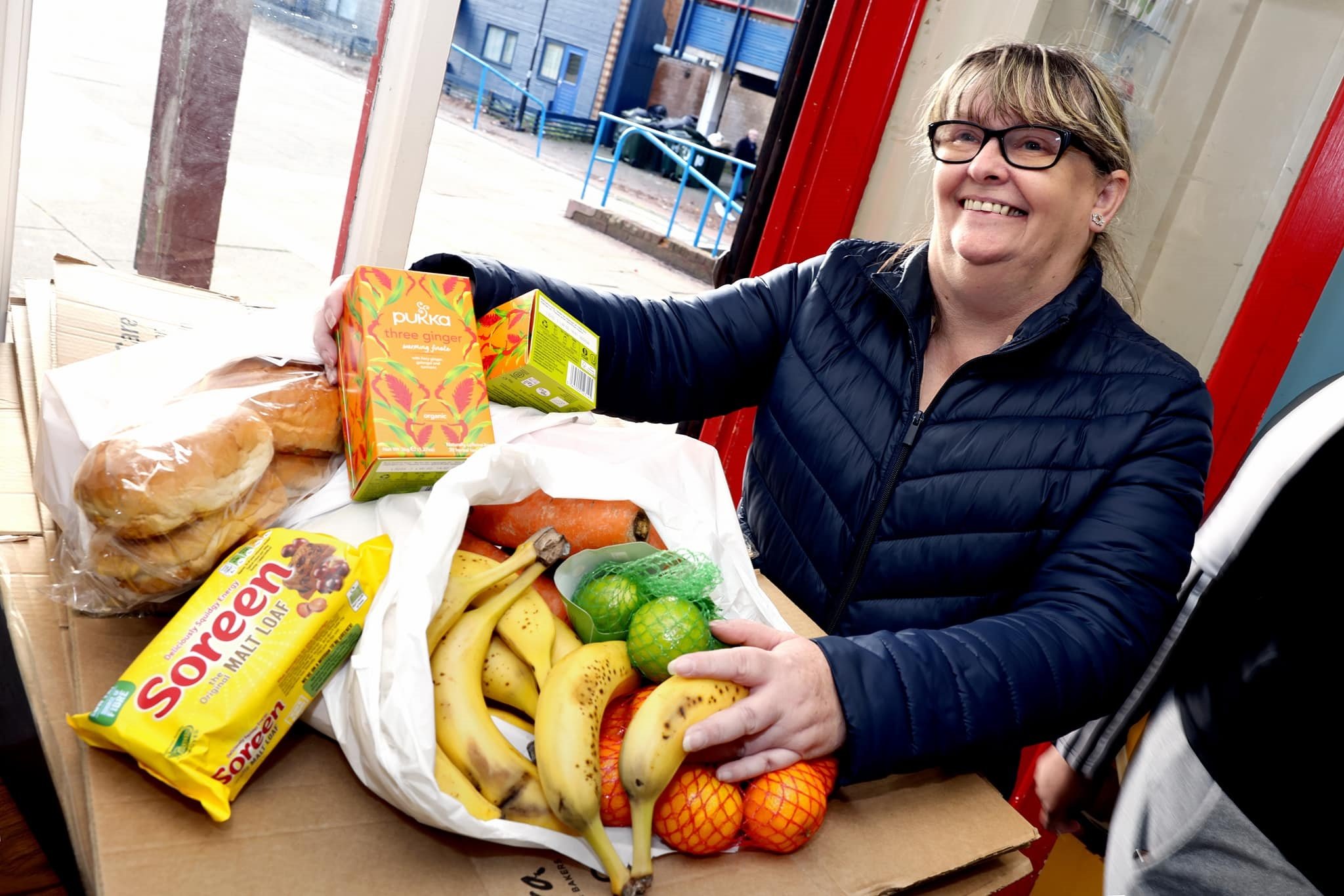From empty cupboards to Westminster: Meet the Godmother of Byker
“We were a lot thinner then. I’d eat at work to save money. I was working 70 hours a week, and me and my daughter would boil a pan of pasta with marge in it and that's what we ate for two years.”
Byker legend, Penny Walters
Food insecurity continues to be one of the most pressing and complex challenges facing communities like Byker. And long-term resident Penny works tirelessly to make sure her neighbours have access to food, but also to raise awareness and drive much-needed change. Penny Walters is something of a legend around the Byker estate in Newcastle. She tells it like it is. And its this Northern grit, honesty and fearlessness that's made her the matriarch of the community that she is today.
Living on the edge
Having lived in Byker for over 35 years, she has witnessed first-hand how much her community has changed. Penny is no stranger to living on the edge and vividly remembers working 70-hour weeks at a supermarket only to be able to feed herself and her daughter pasta and margarine for two years.
“We were a lot thinner then,” Penny remembers wryly, “I’d eat at work to save that little bit of money. I was working 70 hours a week, so I wasn't in the house that often. Me and my daughter would boil a pan of pasta up and have a bit of marge in it and that's what we would eat.”
A community voice on a national stage
It’s this kind of honesty that makes Penny such a powerful advocate. She doesn’t shy away from the difficult conversations, instead choosing to speak openly about what food insecurity really looks like. “I have the confidence to stand up and say this is a major problem. The fact that people don’t have enough money for food,” she said. “And I’m not frightened to do that.”
Penny has taken her message far beyond Biker. She has spoken at national forums, shared her experiences with the NHS and The Food Foundation, and recently travelled to Westminster to advocate for universal basic income as a way to create financial stability for families. Her message to decision-makers is clear: people need the security to plan their lives, not just survive day to day.
Everybody needs good neighbours
But being so community-minded isn’t a new thing for Penny, “I grew up during the miners' strike in ’84 in a mining village. My fiancé was a miner, my dad worked for the coal board up until like two weeks before the strike started. So, we were better off than most. But it was a case of ‘how do you help out?’. You're making soup and you're putting little food parcels up for your friends and your family. So I learned to do things that way and community's always been one of the best things for me. I love living in a community. It's homely, it gives you a sense of worth.”
She fondly remembers a time when “your back door was always open”. Through her work with Bread and Butter, Penny aims to bring that sense of neighbourly support back. She knows everyone by name, and even uses Google Translate to communicate with community members who speak different languages, a small but meaningful gesture that helps people feel included.
Nothing free about being gluten free
Penny also highlights another often overlooked aspect of food insecurity: the extra challenges faced by people with specific dietary needs. For her, being lactose intolerant makes things even more complicated. “A luxury to me now would be being able to have food that I can actually eat,” she explained, “If you couldn't tolerate wheat, you used to be able to go to the doctors and the doctors would give you a prescription for the bread, because gluten-free bread is pretty expensive. But I use lacto-free milk. Now I'm paying twice as much for a litre of milk for me than ordinary cow's milk. It's still the same, but it's more pricey.”
Listen to Penny’s podcast right here.
A big thank you to Penny for taking the time to chat to us. If you’d like to share yours, we’d love to hear from you. Pop us an email and we’ll be in touch.

